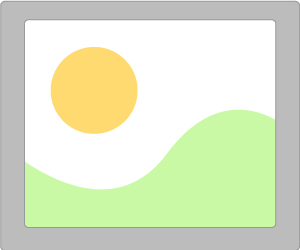LGBTQ+ and Esperanto
od uživatele punkmat ze dne 20. srpna 2015
Příspěvky: 110
Jazyk: English
Rajzino (Ukázat profil) 24. srpna 2015 18:29:56
Vestitor:Asexual is what? If someone is not having it away with someone (for whatever reason; short-term or longer-term) do they really need to dream up an official name and join a group; some of whose happenstance members they have nothing in common with?Asexuality is not when someone is not "having it away with someone". It's when someone does not feel sexual attraction to anyone, or whose interest in sexual activity is extremely low. Whether or not you have or choose to have sex does not necessarily factor into this. Just like both homosexual and heterosexual people choose to have sex with people outside of their sexual preference at times, some asexual people do choose to have sex.
Or if it helps, here is a basic model of possible sexual preferences (excluding non-binary genders and factors other than gender):

From what I understand, people not understanding asexuality or not accepting asexuality as a valid sexual orientation is exactly why some feel a need to join groups.
erinja (Ukázat profil) 24. srpna 2015 18:39:58
Vestitor (Ukázat profil) 24. srpna 2015 18:52:09
Rajzino:Simmer down amiko. I understand perfectly well that the idea refers to people with a neutral sexual libido..the 'a' prefix tells me this. I do not need graphs and charts to 'help'.
From what I understand, people not understanding asexuality or not accepting asexuality as a valid sexual orientation is exactly why some feel a need to join groups.
My point is that someone already feels different, then they get slotted into a scheme with names and scales and an automatic subscription to a group among people to whom they may feel no real affinity.
The common theme in these discussions is that it's not as simple as groups of 'gay' people, or 'queer' (another nuance) or that one particular feeling means you are this or that. On the one hand it is claimed as a highly personal and nuanced 'experience', yet there are names and you can slot yourself into a group among other groups.
So we see the alphabet soup of acronyms with one letter having multiple meanings where people disagree upon what they refer to. It appears like needless complication to afford great weight to matters that could be much more clear.
erinja (Ukázat profil) 24. srpna 2015 19:18:37
Vestitor:The common theme in these discussions is that it's not as simple as groups of 'gay' people, or 'queer' (another nuance) or that one particular feeling means you are this or that. On the one hand it is claimed as a highly personal and nuanced 'experience', yet there are names and you can slot yourself into a group among other groups.Not quite sure what you're getting at here.
Some people want to join with people like themselves to share experiences. They need a vocabulary to find these people like themselves.
Some people don't want to find people like themselves, or don't want to categorize themselves. They are also free not to look for others like them or not to categorize themselves. Who are we to decide whether a "household pet" fan club is sufficient, or whether you actually need separate groups for dog, cat, and chinchilla owners? Only pet owners can know, and presumably they will vote with their feet, joining a cat club, a generic pet club, or no club at all.
Moosader (Ukázat profil) 24. srpna 2015 19:24:51
FractalBloom:I figure they would call themselves an asexual hetero-romantic.Tempodivalse:I always understood that one "Q" stands for "queer", meaning any sexuality that is not heterosexual - kind of a catch-all. (Out of curiosity, would this also include asexuality?)I'm asexual and I refer to myself as queer. Granted, I'm comfortable in a [romantic] relationship with someone of either gender, so...I don't know what a hetero-romantic asexual would call him/herself.
Sometimes I see the abbreviation written "LGBTQIA" to specifically include asexuals and intersex. I prefer to stick with "LGBT+" for the sake of simplicity.
I, personally, describe myself as an asexual panromantic.
If anyone wants to join the Aliuloj blog (http://aliuloj.alketo.info/) let me know and I'll add you to authors. (Please email me at Rachel@Moosader.com - I don't check Lernu all that much.)
Tempodivalse:I did try to define some terms relating to sexuality / asexuality on my blog, too.
Speaking of which - What is a good Esperanto translation for "asexuality"? The best I could do is neniuseksemo, to mimic the existing samseksemo, ambauxseksemo, aliseksemo but I keep feeling there's a better alternative I'm not seeing.
neniuseksema seems like the best term to me, personally.
erinja:I know at least one 'out' and vocal asexual esperantist, which was the first I heard of it, but fortunately it has been in the news a bit more lately. Always good for raising awareness.Seems like I've met a few asexuals (probably around 6 or so) in Esperantujo. So that's cool.
Vestitor:All this naming and joining groups. Asexual is what? If someone is not having it away with someone (for whatever reason; short-term or longer-term) do they really need to dream up an official name and join a group; some of whose happenstance members they have nothing in common with?One comes up with labels in order to find and provide support. It can be alienating and lonely out there when you feel like the only one, which is especially common among asexual people, since our entire culture acts like *everybody* wants sex or has sexual attraction.
There's a little too much cod-philosophy hanging around this movement.
--Rachel
Rajzino (Ukázat profil) 24. srpna 2015 20:06:52
Vestitor:Simmer down amiko. I understand perfectly well that the idea refers to people with a neutral sexual libido..the 'a' prefix tells me this. I do not need graphs and charts to 'help'.I'm sorry, I didn't mean to insult your intelligence. I personally like it when people clarify things with graphs and charts, even if they are already clear to me, so I guess I projected that part of me onto you.
Moosader:-snipsnip-Thanks, Rachel! I have a bit of an interest in gender and sexual minorities, so I enjoyed reading your input. For some reason it hadn't occurred to me before that asexual people can feel alienated by the focus on and matter-of-factness of sex in our society.
Tempodivalse (Ukázat profil) 24. srpna 2015 22:20:08
For some reason it hadn't occurred to me before that asexual people can feel alienated by the focus on and matter-of-factness of sex in our society.Indeed - try to find a movie or pop song nowadays that doesn't mention or at least imply sex. I imagine it can be fairly overwhelming even for some non-asexuals.
Perhaps a bigger problem is when others insist that it's impossible not to desire sex, and attribute the asexual's lack of interest to mental or physiological problems, childhood abuse, or suggest they "haven't yet found the right person". (These reactions should sound familiar.)
BTW - Thanks for the graph, Rajzino - very illustrative

Alkanadi (Ukázat profil) 26. srpna 2015 16:40:33
For some reason it hadn't occurred to me before that asexual people can feel alienated by the focus on and matter-of-factness of sex in our society.There are a lot of sexual jokes in movies these days.
Having said that, I think sexual expression is suppressed in our society. Because of the suppression, it is transformed into something taboo, which is why it is always a hot potato. Imagine if we talked about food with the same bashfulness that we talk about sex.
By the way, in this thread, we forgot a major group of the Esperanto community. There are many Esperantists who are polyamorous, which means they have more than one partner.
Vestitor (Ukázat profil) 26. srpna 2015 16:51:39
Alkanadi:Offical sha::ing about. One of my friends declares himself 'polyamorous', he has it away with a particular woman who only recently married (can't think why) and apparently the husband knows about it (must have a cuckold fetish).
By the way, in this thread, we forgot a major group of the Esperanto community. There are many Esperantists who are polyamorous, which means they have more than one partner.
When I sat next to her at a party and got into an animated conversation - about Tintin I recall - he was hovering about and eventually came back to 'claim' her; displaying jealousy and betraying his so-called poly-amorous openness.
It's a total crock devised to give a special name to promiscuity.
Alkanadi (Ukázat profil) 26. srpna 2015 17:01:42
Vestitor:It's a total crock devised to give a special name to promiscuity.I think promiscuity means that you are always looking for opportunities. However, polyamorous people have more than one partner, but it doesn't mean they are open and looking for more opportunities. For example, before STDs became popular, there was a swinging subculture that was growing. In some cases, two couples would be together but that was it. Nobody else was invited or it would considered cheating.
But, honestly, I don't know.




